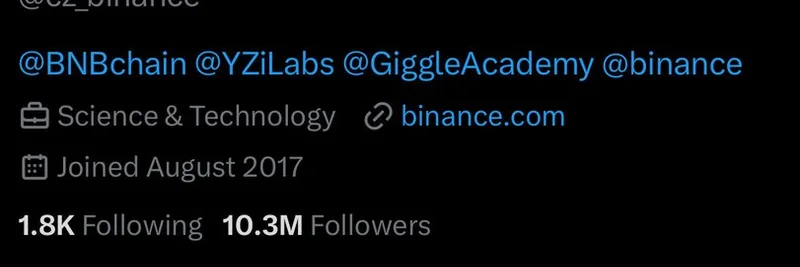In the wild world of crypto trading, where meme tokens can skyrocket or plummet in minutes, choosing the right exchange can make all the difference. A recent thread from @basedfk, a vibe coder at $CLIZA and developer at Cliza Systems—a token launch studio on the Base blockchain—highlights the perils of centralized platforms like Binance. His story serves as a stark warning for meme token enthusiasts who thrive on high-volatility trades.
The Perfect Trade Gone Wrong
Back on May 19, 2021, during one of crypto's infamous flash crashes, @basedfk spotted an opportunity. Bitcoin was tumbling, and he went short on BTCUSDT perpetuals, aiming for a support level around $28,888—the year's low at that point. As the market dipped exactly to his target, his position should have printed serious profits, potentially over a million dollars if he'd flipped to long on the bounce.
But then disaster struck. Binance's platform glitched out. Balances showed as "undefined," orders wouldn't execute, and withdrawals were impossible. What should have been a triumphant trade turned into a nightmare, leaving him with a loss of about $171,000—funds he had proof of in his account.
To illustrate the chaos, here's a key moment from his experience:
This image captures the aftermath: even CZ Binance, the exchange's founder, ended up blocking @basedfk on X after the ordeal.
Battling for Compensation
Undeterred, @basedfk pursued reimbursement. He started with customer support, providing evidence of his balance and the platform's failures. Binance initially denied any issues, offering paltry compensations like a three-month VIP upgrade or $1,000. Persistent, he pushed back, mentioning potential litigation.
Eventually, they upped the offer to $60,000 in USDT plus a $60,000 trading fee coupon—a fraction of his claim. Rejecting it, he joined forces with other affected traders for international arbitration, as required by Binance's terms. Sadly, the effort ran out of steam due to funding issues, and they were hit with $4,000 each in costs from Binance.
The lesson? Even with spot-on market calls, centralized exchanges can fail you spectacularly, especially during high-volatility events common in meme token markets.
Why This Matters for Meme Token Traders
Meme tokens like Dogecoin, Shiba Inu, or newer ones launched via platforms like Cliza Systems are all about momentum and hype. They often see massive price swings, similar to that 2021 BTC crash. Trading perps or spots on these can be lucrative, but if your exchange buckles under pressure—like Binance did—you could lose everything.
Centralized exchanges (CEXs) like Binance hold your funds and control the infrastructure. Downtimes, glitches, or even manipulative practices can wipe out gains. In contrast, decentralized exchanges (DEXs) like Hyperliquid run on blockchain, offering transparency, self-custody, and resilience. Hyperliquid, in particular, specializes in perpetual futures with low fees and high liquidity, making it ideal for trading volatile assets without the CEX headaches.
$CLIZA itself is a utility token for a launchpad that simplifies ERC-20 token deployments and liquidity provision on Base. If you're in the meme space, tools like this emphasize the shift toward decentralized solutions where users aren't at the mercy of a single entity.
Switching to Hyperliquid: A Smarter Move
@basedfk's takeaway is clear: "Don't trade on a platform where even with perfect foresight, direction, and price target, it can result in a big loss." He urges pulling funds from Binance and migrating to Hyperliquid.
For meme traders, this means:
- Better Uptime: Decentralized protocols don't have single points of failure.
- Self-Custody: Keep control of your keys and assets.
- Lower Risks in Volatility: Handle flash crashes without platform meltdowns.
- Community-Driven: Aligns with the ethos of meme culture—decentralized and fun.
If you're trading meme tokens or perps, consider exploring Hyperliquid today. Stories like this remind us that in crypto, decentralization isn't just a buzzword—it's a safeguard.
For more insights on meme tokens, launchpads, and blockchain tech, stay tuned to Meme Insider. What's your take on CEX vs. DEX? Share in the comments!



